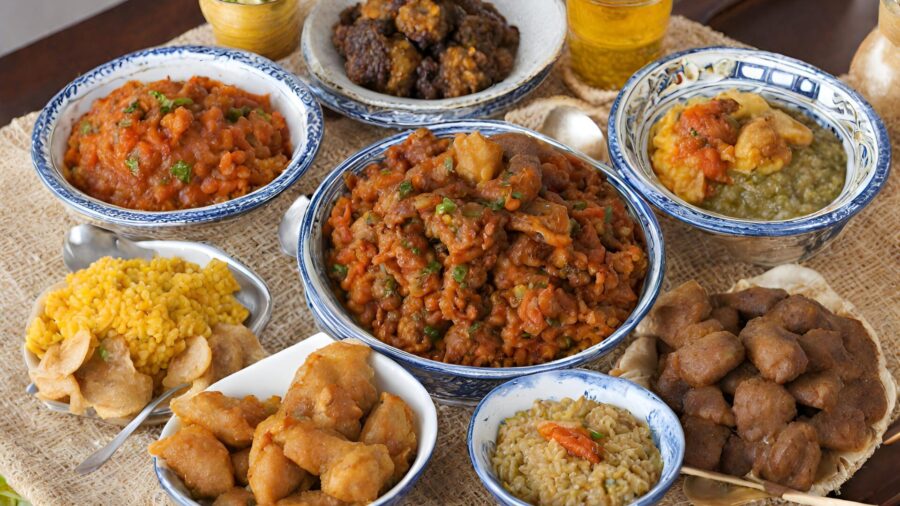Spicy jollof rice? Suya beef kabobs? How about some fufu dough?
These are West African dishes, and according to data from Open Table, West African food represented the top trending cuisine of 2023, rising 72% year-over-year. Some experts say the region’s growing momentum on the global culinary scene, however, has been years in the making.
Kofi Maafo, CEO of the award-winning Bloom Bar in Accra, Ghana, feels West Africa’s rise began back in 2019.
“The interest in Africa was triggered by a number of factors; namely the breakthrough of our Afrobeat music into the American music scene gave West Africa the platform to showcase other parts of the culture, which included art and food,” Maafo told The Food Institute.
“There was an initiative by the Ghanaian government to bring a number of celebrities back home to experience the culture in what we termed ‘the year of the return.’ This was documented in 2019 by a number of African American musicians and movie stars.”
Now, key elements of West Africa’s culture – including dishes like spicy jollof rice – are frequently highlighted on social media for the world to see. America has taken notice, evidenced by the Jollof rice festival held each year in Atlanta.
“What fuels this culinary renaissance? It’s a confluence of factors,” noted Mark Haas, who leads a staff of CPG specialists as the CEO of Helmsman Group. “Globalization has shrunk our world, opening minds and mouths to diverse cultures.”
West African dishes gaining widespread popularity include:
- Suya beef kabobs
- Egusi, a nutty soup
- Fufu dough
“The food market is becoming more adaptive to West African ingredients, so there has been a rise in the import of special spices and the opening of multiple restaurants that have a few West African dishes on their menu,” said Maafo, who recently announced the opening of a restaurant and bar in Atlanta.
While West African food was the top trending cuisine in 2023 according to OpenTable data, African cuisine in general was next in line, increasing by 23%.
And 2024 figures to be another big year for food from countries like Nigeria and Ghana, as their dishes are displayed in restaurants and grocers the world over.
“This isn’t just a fleeting trend,” Haas said. “It’s a gastronomic adventure rooted in history, cultural exchange, and a shared appetite for the unknown.
The Food Institute Podcast
It appears plant-based products have hit a bit of a lull in the U.S., but what’s next for the sector on the whole? David Benzaquen of Mission: Plant and Moonshot Collaborative breaks down the demographics of plant-based eating, common health attributes consumers are looking for, and where the sector could be headed in the future.





